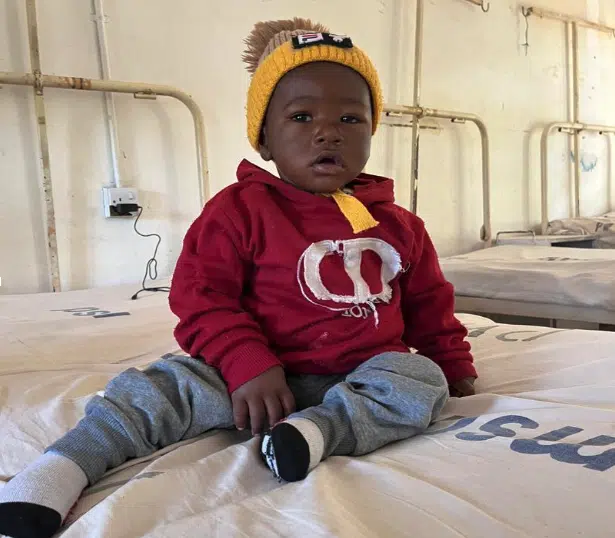Sep 16
“I was very scared when Gidion became so weak and sick… but when the nurses and doctors acted so quickly, I had hope my son would have a second chance” Irene, Gidion’s mother
When eight-month-old Gidion fell ill with fever, diarrhoea, and weakness, his parents tried what many families in rural Tanzania must do—seek help at the local pharmacy, the only nearby option. But after four days, Gidion’s condition worsened. His tiny body was dehydrated and limp, and his parents made the urgent journey to Vwawa District Hospital in the Southern Highlands.
There, he was received by a nurse trained in Essential Emergency and Critical Care (EECC)—a simple but life-saving approach that equips health workers to act fast when a patient is critically ill.
“When Gidion arrived, he was critically ill and showing signs of severe dehydration,” Fatima, a nurse in Vwawa, recalls. “Using the EECC approach, we quickly assessed him, started IV fluids, and monitored his vital signs closely. Seeing him improve over the next few days was very rewarding. It shows how timely, basic interventions can save lives.”
The team wasted no time. They measured his vital signs—heart rate, breathing, temperature—and immediately recognised how serious his condition was – he was critically ill. Gidion was given IV fluids to restore his circulation and medicine to lower his fever. Within a short time, small signs of improvement began to show.
But the danger was not over. It was confirmed that Gidion had sepsis, a life-threatening infection that can overwhelm a child’s organs if untreated. In the paediatric ward, he was started on antibiotics, continued on IV fluids, and monitored closely. Slowly, over three days, his strength returned. His diarrhea subsided, he was able to drink fluids, and his mother was encouraged to resume feeding him with breast milk alongside semisolid foods. By the time he was discharged, Gidion was alert, stable, and back on the path to health.
“They gave us the treatment he needed and cared for him every step of the way… we are so grateful to the staff for saving our son” — Irene (with a proud smile on her face)
 Baby Gidion, ready to go home
Baby Gidion, ready to go home